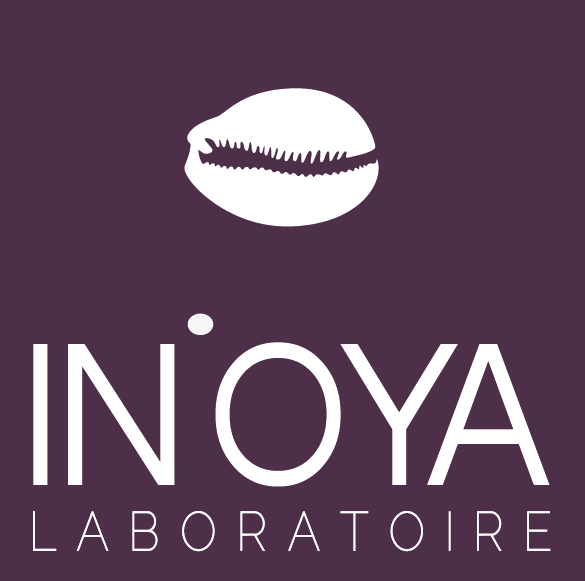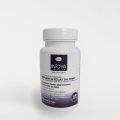Dietary Supplements for Skin: Why Acting from Within Has Become Essential
What is a dietary supplement?
A dietary supplement is a concentrated source of nutrients (vitamins, minerals, fatty acids, amino acids, plants, or other substances) designed to complement a normal diet. It usually comes in the form of capsules, tablets, powders, or ampoules, to be taken as part of a regimen alongside a balanced diet.
According to European regulations (Directive 2002/46/EC), a dietary supplement does not replace medication and is not intended to treat diseases. It aims to support a bodily function, prevent deficiencies, or optimize physiological function during specific periods: stress, fatigue, seasonal changes, sun exposure, etc.
The skin, a reflection of our internal health
Dull complexion, blemishes, pigmentation spots, persistent dryness, premature aging... These visible skin signs often reflect internal imbalances. While topical treatments can improve surface appearance, true transformation starts from within.
This is where dietary supplements for the skin come in: nutritional allies designed to support skin biology and sustainably improve radiance, health, and even skin tone.
How do dietary supplements work on the skin?
The skin is a living organ, constantly renewing itself and highly dependent on our diet. To regenerate properly, maintain its structure, produce collagen, or defend against aggressors (UV, pollution, stress...), it requires specific micronutrients.
Skin supplements provide bioactive substances — vitamins, minerals, amino acids, antioxidants, plants — that:
- Strengthen the skin barrier
- Fight oxidative stress, a cause of premature aging
- Promote balanced pigmentation, reducing the risk of spots
- Stimulate microcirculation for a more radiant complexion
- Deeply hydrate with actives like hyaluronic acid
Unlike topical care that works on the epidermis, supplements act in the dermis, where cells regenerate and imbalances leading to skin problems begin.
Which ingredients should you prioritize for beautiful skin?
- Powerful antioxidants: Vitamin C, zinc, selenium, grape or hibiscus polyphenols.
- Nutrients for the skin barrier: Niacinamide, essential fatty acids, vitamin E.
- Skin-evening agents: Copper, zinc, vitamin B3.
- Hydration boosters: Hyaluronic acid, hydrolyzed marine collagen, mucilage-rich plant extracts like hibiscus or aloe vera.
A valuable approach for dark, olive, and mixed skin tones
Pigmented skin has specific biological traits making it more prone to:
- More visible and persistent post-inflammatory spots
- Rapid dehydration, despite an often "oily" appearance
- Uneven tone and loss of uniformity after sun exposure or stress
A well-chosen skin supplement regimen can play a key role in preventing and regulating these issues. By supporting skin balance from within, it enhances the results of daily topical skincare.
When should you take them?
- To prepare for sun exposure (spring, summer)
- At the start of autumn or during winter
- During periods of fatigue or stress
For optimal results, a 1 to 3-month regimen is recommended, respecting the indicated dosages and integrating it into an overall wellness and skincare routine.
5 myths to debunk
- Topical solutions are enough: False. Acting only on the surface often masks symptoms without addressing the root cause.
- All skin supplements are the same: No. You need clinically dosed, targeted ingredients for real effectiveness.
- Results are visible quickly: Not exactly. Skin renewal takes about 28 days. For lasting results, allow 4 to 8 weeks.
- Supplements are only for mature or problematic skin: False. Prevention is key. Even young or flawless skin can benefit from supplements.
- You can only take one supplement at a time: Not necessarily. Combining multiple products is possible if dosages are controlled.
Frequently Asked Questions
Can you take multiple supplements at once?
Yes, provided their compatibility is checked. Some nutrients (like zinc, copper, or vitamin A) have limits that must not be exceeded. Expert formulations consider these balances to avoid overdosing.
Are supplements really effective for dark, olive, and mixed skin tones?
They can be, if formulated specifically for these needs. Pigmented skin is more prone to post-UV inflammation, persistent spots, and internal dehydration. An effective formula should include:
- Powerful antioxidants (zinc, selenium, vitamin C, polyphenols)
- Pigment regulators (copper, niacinamide)
- Hydrating and protective ingredients (hyaluronic acid, hibiscus)
Many market formulas are too generic, lacking truly targeted ingredients. In such cases, results are limited, especially for pigmentation-specific issues.
Conversely, advanced formulas combine targeted ingredients in synergy, with dosages tailored to phototypes IV to VI. These are the ones to look for to achieve tangible results.



